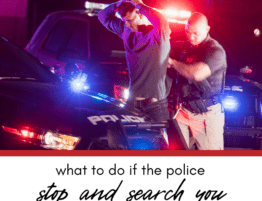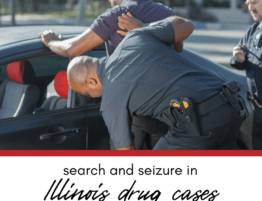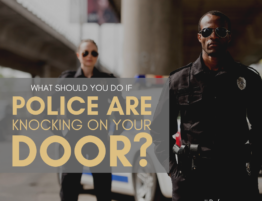
Many people call their Chicago criminal defense attorneys after they’ve been stopped and frisked by the Chicago PD – and if that’s happened to you, here’s what you need to know.
By law, Chicago police must have “reasonable suspicion” to stop somebody on the street and search them. But who defines what “reasonable suspicion” is, and how do cops decide who looks suspicious and who doesn’t? Allowing for such discretionary interpretation of the phrase “reasonable suspicion” makes the legality of stopping and frisking anyone who is not visibly engaged in criminal activity a point of contention for many native Chicagoans.
It is legal for Chicago PD to stop you on the street and ask you where you’re going, what you’re doing and whether you have identification. If a police officer stops you on a Chicago street but doesn’t make an arrest, he or she is supposed fill out a “contact” card that contains information about you and why you were stopped.
A 2000 Supreme Court ruling gave police even more latitude by stating that they’re are justified in stopping and frisking anyone walking in these neighborhoods who appears to be “evasive” or “nervous.”
Recent Lawsuit Over Stop and Frisk Laws in Chicago
In April, 2015, six men filed a federal lawsuit against the city of Chicago and 14 police officers alleging that stop and frisk procedures are unconstitutional. Seeking class action status on behalf of anyone subjected to stop and frisk tactics in Chicago, the lawsuit claims that these men were stopped without probable cause and asked for an injunction prohibiting police officers from stopping and frisking innocent individuals.
As it turns out, the racial breakdown of stop-and-frisk stops in Chicago includes:
- 72 percent black
- 17 percent Hispanic
- 9 percent white
- 1 percent Asian or Pacific Islander
What Should You Do If You are Stopped and Frisked?
If you are stopped and frisked by a Chicago police officer, the best thing to do is answer the officer’s questions and cooperate. Because it is legal in Chicago for officers to stop and risk you if they have “reasonable suspicion,” resisting can cause more trouble than it’s worth.
As with any encounter with police, remember:
- Everything you say can (and will) be used against you
- You don’t have to speak; you can simply say “I would like to remain silent”
- You can ask if you are under arrest or if you’re free to leave
- Stay calm and remain in control of your words and your body language
- Do not argue with police
- Don’t touch a police officer
- Don’t resist, even if you are innocent
- If you are arrested, ask for your lawyer immediately
If you need help, we are always here. Call us at 847-920-4540 or get in touch with us online.[/fusion_text][/fusion_builder_column]






Write a comment: